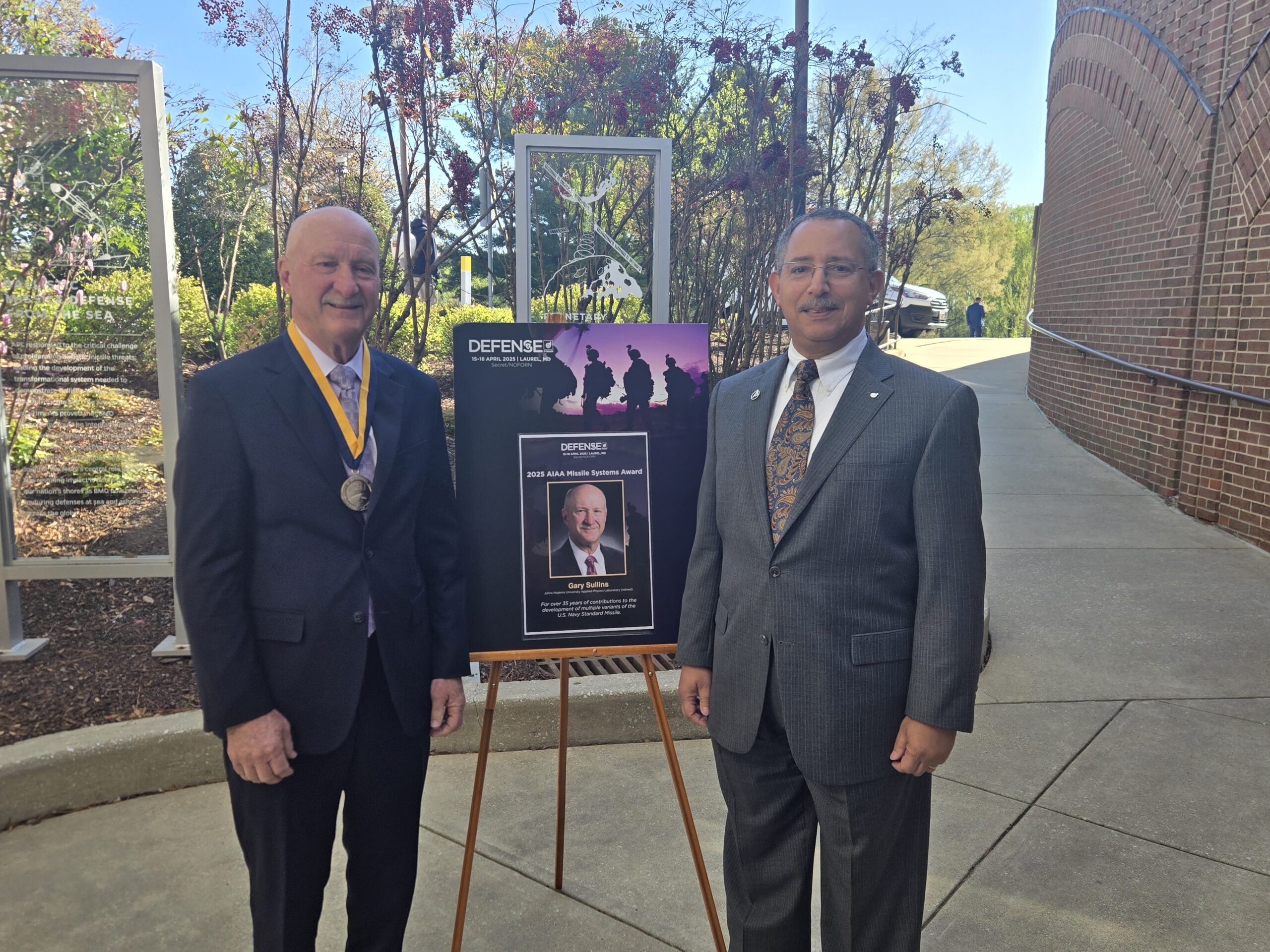Gary Sullins, retired chief engineer of the Air and Missile Defense Sector at Johns Hopkins University Applied Physics Laboratory (APL), received the 2025 AIAA Missile Systems Award on 17 April during the AIAA DEFENSE Forum held in Laurel, Maryland.
Sullins’ award citation reads: “For over 35 years of contributions to the development of multiple variants of the U.S. Navy Standard Missile.”
The family of surface-to-air missiles, beginning with the SM-2, has a long history of innovation and continuous improvement, with recent advances focused on improved software, new rocket motors, and increased range for intercepting hypersonic threats.
Sullins joined APL in 1982 to work on direct-connect scramjet combustion tests. Over his long APL career, he served in several leadership positions within the Air and Missile Defense Sector (AMDS). As AMDS’s managing executive, he oversaw a staff of over 700 engineers and scientists working on a variety of Navy and Missile Defense Agency (MDA) programs. As the SM-3 program manager, he provided technical oversight from the initial concept development through the first intercept of a ballistic missile. He held two temporary government office assignments – first as the Standard Missile Technical Director and then as the Aegis BMD Technical Advisor. Before retirement Sullins was the lab’s lead for the MDA Independent Readiness Review Team for regional defense.
Sullins has published over 60 papers in journals and presented at AIAA events and other professional conferences (ISOABE, JANNAF), as well as in formal contractor reports. He was named an Aegis BMD Pathfinder for his contributions to the program.
“I had a tremendously interesting career at APL and got to be involved with so many fascinating tests and brilliant people through the years. The award was a very pleasant surprise,” said Sullins.
Stephen Blanchette Jr., Director, AIAA Space and Missiles Group, who presented the award to Sullins, said, “What strikes me about Gary’s contributions is his career-long involvement in missile defense, which continues even in retirement. When one considers the current trends in defending the United States, the impact of Gary’s work looms large.”
Sullins holds doctorate, master’s, and bachelor’s degrees in aerospace engineering from the University of Maryland.




